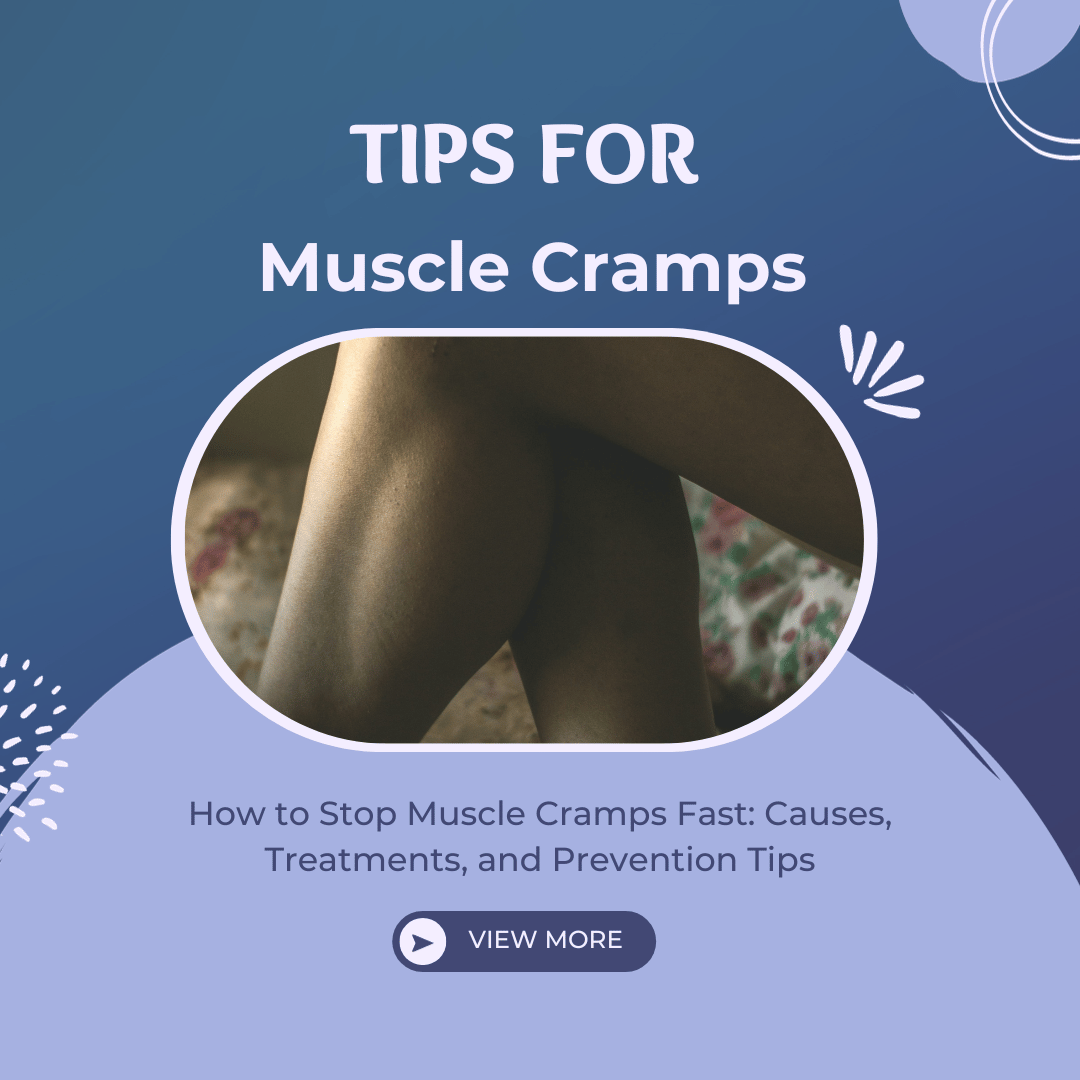How to Stop Muscle Cramps Fast
How to Stop Muscle Cramps Fast: Causes, Treatments, and Prevention Tips
Muscle cramps can strike unexpectedly, causing discomfort and interrupting daily activities. Discover effective strategies to stop muscle cramps fast, including comprehensive insights into causes, treatments, and preventive measures.
Understanding Muscle Cramps: FAQ
Q1: What causes muscle cramps?
Muscle cramps can be triggered by a variety of factors, including dehydration, which reduces the fluid available in muscles, making them more prone to cramping. Electrolyte imbalance, particularly a deficiency in minerals like potassium and magnesium, can disrupt proper muscle function and contribute to cramps.
Q2: How can I alleviate cramps during sleep?
Nocturnal leg cramps, common among older adults, may be relieved by addressing muscle fatigue through gentle stretching before bedtime, maintaining electrolyte balance with a balanced diet, and consulting your healthcare provider to adjust medications if necessary.
Q3: What contributes to cramps that make walking difficult?
Cramps hindering movement may result from muscle strain due to overexertion or injury. Additionally, arthritis-induced inflammation in joints can exert pressure on nerves and muscles, leading to cramps. Poor circulation and certain medication side effects can also contribute.
Effective Relief Strategies
- Stretching and Massaging: Incorporate specific stretching exercises such as calf stretches, toe touches, and quadriceps stretches to relax muscles and alleviate cramps. Gentle massages using circular motions on the affected area can also provide relief.
- Heat Application: Apply a heating pad or warm towel to the affected muscles to enhance blood flow, promoting relaxation and relief from cramps.
- Hydration: Ensure adequate fluid intake, especially water and electrolyte-rich drinks, to keep muscles hydrated and reduce the risk of cramps.
- Medication: Consult a healthcare professional for prescribed medications in severe cases. Common options may include muscle relaxants or pain relievers.
Prevention Tips for Long-term Well-being
- Stay Hydrated: Prevent dehydration and electrolyte imbalances by maintaining optimal fluid intake. Include electrolyte-rich foods like bananas and oranges in your diet.
- Regular Stretching: Incorporate a variety of stretching exercises into your routine, focusing on major muscle groups, to keep muscles flexible and reduce the risk of fatigue and strain.
- Healthy Diet: Adopt a nutrient-rich diet comprising fruits, vegetables, whole grains, and lean proteins to provide your muscles with the necessary nutrients for proper function.
- Limit Caffeine and Alcohol: Reduce consumption to avoid dehydrating muscles and heightening the risk of cramps.
- Supportive Footwear: Choose shoes that provide adequate support to minimize muscle strain and prevent cramps.
FAQ Section
Q4: When should I seek medical attention for muscle cramps?
Persistent or severe cramps warrant a consultation with a healthcare professional to rule out underlying medical conditions, especially if they are interfering with daily activities.
Q5: Are there specific exercises to prevent muscle cramps?
Incorporate exercises that focus on stretching and strengthening muscles, such as yoga and gentle aerobics. Additionally, consider activities like swimming that provide low-impact muscle conditioning.
Empower yourself with knowledge on how to stop muscle cramps fast, and take proactive steps to find relief and prevent future occurrences. Your muscles deserve the care and attention to keep cramps at bay!

